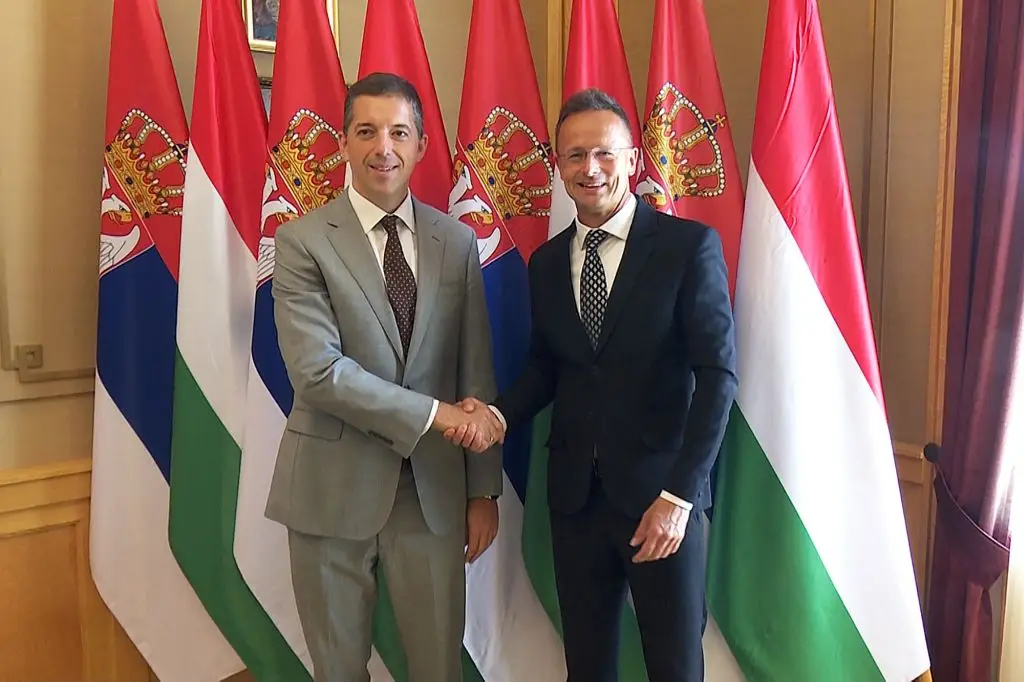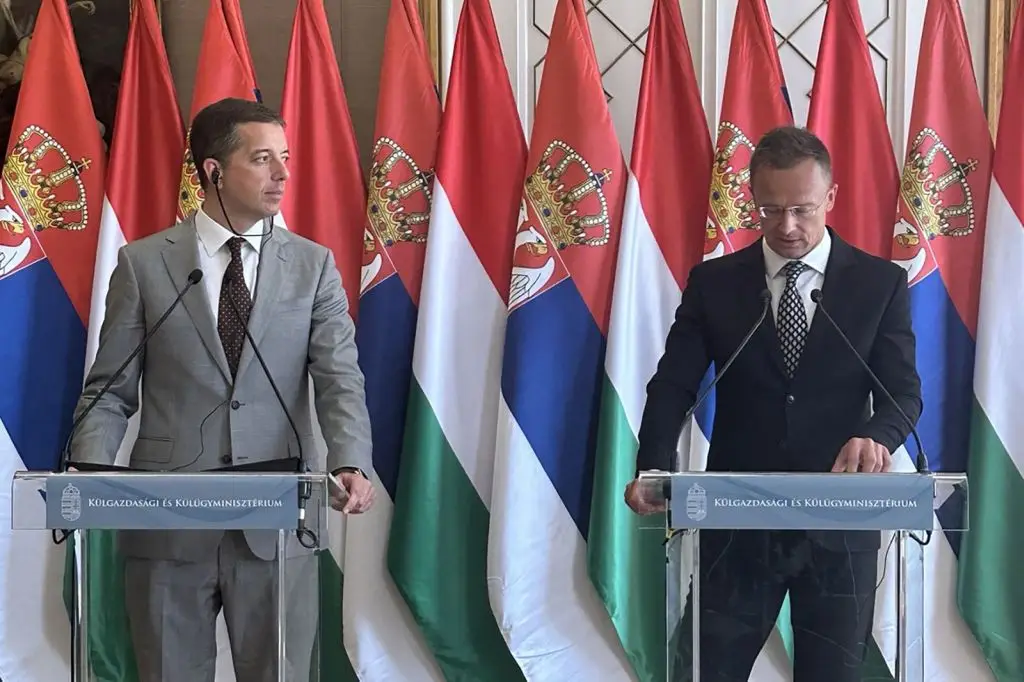Serbian Minister of Foreign Affairs Marko Đurić met today in Szeged with Hungarian Minister of Foreign Affairs and Trade Péter Szijjártó to discuss a range of topics in the field of bilateral cooperation, such as transport and energy infrastructure.
- Serbia
Get to know Serbia
- Citizens
Culture and science
Health services
Pension and disability insurance
- Business
Employment
Economy
- Media
- Government
- Contact
Keep in touch
Keepin touch
Whether you have a question, comment, suggestion or any problem in the purview of the government, send us your message and we will try to respond as soon as possible. If your problem is not in our purview, we will forward your message to the relevant institution.
Gratitude to Hungary for supporting Serbia’s European path
At a joint news conference with Szijjártó, Đurić expressed particular gratitude to his Hungarian counterpart for the support given not only to Serbia but also to the entire region in its pursuit of European Union membership, emphasising that Serbia can contribute to the development and growth of the European economy, as well as to European security.
Đurić stated that he is glad that Hungary and Serbia jointly support stability in the region and that Serbia is grateful to its Hungarian friends for their understanding of the difficult situation faced by Serbs in Kosovo and Metohija, and for Hungary’s contribution to the safety of both the Serbian and other populations in Kosovo and Metohija through participation in the KFOR Mission.
The head of Serbian diplomacy said he had informed Szijjártó in particular about the persecution of the Serbian Christian population, who were not allowed to mark this St. Vitus Day in Kosovo and Metohija in a dignified manner.
Szijjártó said that his country supports accelerating the EU enlargement process towards the Western Balkans region, as this would inject new momentum into the Union and strengthen its security.
He noted that there is no reasonable person in the world today who believes that Ukraine as a state is in a better condition than Serbia, and that the EU should first admit countries that are in poor shape and only afterwards those that have made progress.
-
 Belgrade, 11 February 2026
Belgrade, 11 February 2026Ample space for advancing cooperation with Ukraine in field of education
-
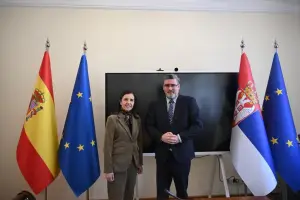 Belgrade, 11 February 2026
Belgrade, 11 February 2026Spain’s support for Serbia’s European path
-
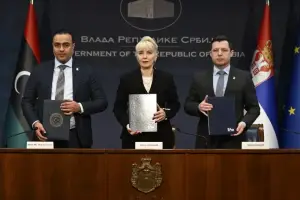 Belgrade, 10 February 2026
Belgrade, 10 February 2026Libya’s participation in Expo 2027 confirms strong bilateral relations
-
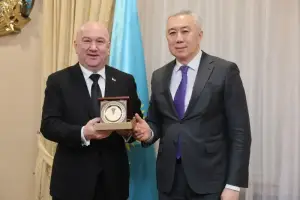 Belgrade/Astana, 10 February 2026
Belgrade/Astana, 10 February 2026Potential for advancing cooperation with Kazakhstan in multiple sectors
-
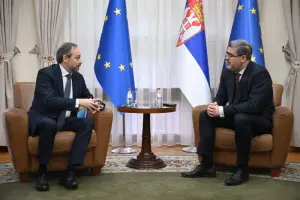 Belgrade, 10 February 2026
Belgrade, 10 February 2026Serbia fully committed to implementation of reforms
-
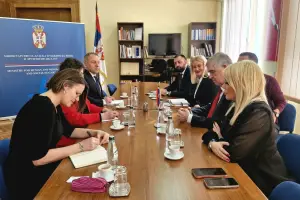 Belgrade, 9 February 2026
Belgrade, 9 February 2026Partnership with Romania in solving issues of importance to citizens
-
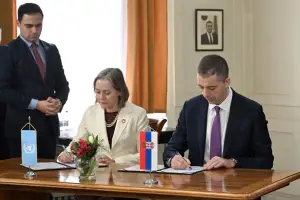 Belgrade, 9 February 2026
Belgrade, 9 February 2026UN-Republic of Serbia Sustainable Development Cooperation Framework 2026-2030 signed
-
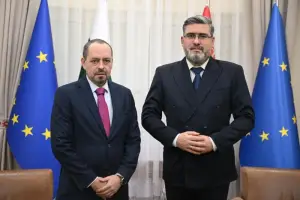 Belgrade, 9 February 2026
Belgrade, 9 February 2026Support of neighbouring countries of great importance for Serbia’s European integration process
-
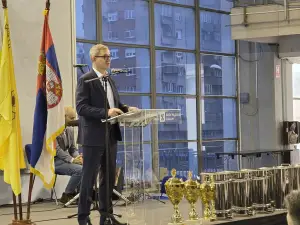 Belgrade, 7 February 2026
Belgrade, 7 February 2026Solid foundations for long-term, systemic development of beekeeping laid
-
 Belgrade/Brussels, 6 February 2026
Belgrade/Brussels, 6 February 2026Serbia's full readiness to cooperate with EC to accelerate reform implementation

